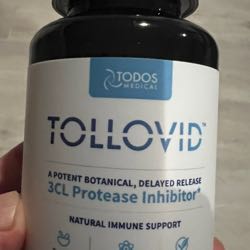Eli Lilly’s Setback Highlights Challenges of Alz
Post# of 30082

Business
Treatments focusing on clearing clumps of beta amyloid protein have proven disappointing
The pursuit of a treatment for Alzheimer’s disease has long focused on clearing clumps of a protein called beta amyloid that build up in the brain of those with the mind-robbing condition.
But the failure of Eli Lilly & Co.’s experimental amyloid buster is the latest indication that targeting amyloid is far from straightforward. Other treatments that target these so-called plaques have proven disappointing.
Lilly said Wednesday that it wouldn’t seek regulatory approval to market its experimental medication, known as solanezumab, for mild dementia, because it didn’t significantly slow down cognitive decline in patients with early disease.
University of Texas Medical Branch neuroscientist Rakez Kayed said going after plaques alone probably isn’t the best strategy generally. Combination therapies targeting several Alzheimer’s-related proteins, including another called tau, might be more fruitful. Tau can form tangles that are toxic to brain cells.
Companies, including Johnson & Johnson, Roche Holding AG, Bristol-Meyers Squib Co. and AbbVie Inc. , are developing drugs that target tau. In July, an experimental drug developed by TauRX Pharmaceuticals Ltd. failed to provide cognitive benefits. It was the first tau-related therapy to make it to late-stage testing in humans.
Scientists also think treating the disease earlier before the start of symptoms—like memory loss and cognitive impairment—will be key.
That was the basis of the most recent Lilly trial. Though earlier studies of its drug had also failed to show improvements, the company was able to tease out a positive effect when it refocused its analyses on patients with mild Alzheimer’s. Lilly had spent about $1 billion on testing solanezumab, said Phyllis Ferrell, vice president and global leader for Lilly’s Alzheimer’s platform, in October.
Amyloid is still an important focus of Alzheimer’s research, and some neuroscientists say that lackluster results to date could stem from scientists’ incomplete understanding of the protein’s role. For instance, beta-amyloid plaques also form in the brains of cognitively normal patients and the relationship between these plaques and declines in cognition aren’t well defined, according to a recent review. Amyloid also exists in different forms that need to be better understood, according to scientists.
Lilly’s drug is still being studied in other trials. And earlier this year, Biogen Inc. reported in the journal Nature the results of a small clinical trial that seemed to suggest that cleaning up Alzheimer’s signature protein clumps might, in fact, treat problems with memory and cognition associated with the disease. The results had previously been reported at an academic conference.
Lilly’s antibody attacked different versions of amyloid than Biogen’s drug, which is dubbed aducanumab.
There was early excitement over Biogen’s results, though neuroscientists also cautioned the findings were still preliminary and had to be confirmed in a larger group of patients.
Historically, many small studies have shown “significant cognitive benefits” that couldn’t be replicated in larger trials, said David Morgan, the director of the University of South Florida Health Byrd Alzheimer Institute in an interview earlier this year.
Biogen said in October it was planning further testing for aducanumab, with results expected in the next few years.
Aducanumab seems to incite microglia, the brain’s scavenger cells, to chew up plaques. That could eventually cause inflammation, which could be detrimental to brain health, said Dr. Kayed.
Write to Daniela Hernandez at daniela.hernandez@wsj.com
 (1)
(1) (0)
(0)